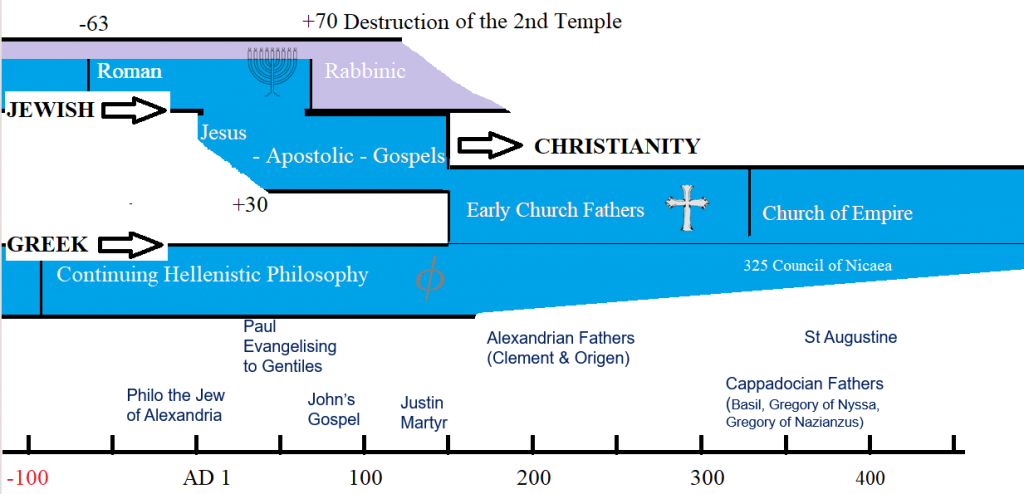Mondays, 6.30 to 8 pm, Twilight 2020
Dial-in back-up for connection disruptions: +61 3 7018 2005 or +61 2 8015 6011 Meeting ID: 891 2138 2443
Course outline and further reading
Week One




Week 2
We discussed this week the term ‘Hellenist’ used on its own in the New Testament to refer to Hellenised Jews. This is found especially in the Acts of the Apostles. See for example Acts, 6:1, where ‘Hellenist (Jews)’ are contrasted with Jewish Jews as ‘Hebrews’ (although translations vary and can obscure precisely which groups are distinguished here). So, in the New Testament we have folks who are Jewish Jewish referred to as Hebrew (‘Hioudaios’), Hellenised Jewish as Hellenist (‘Hellenistes’), Greek as ‘Hellene’, and then there appears also the old Greek term ‘Barbarian’ for other nationals and another Greek term used generally for non-Jewish nationals or Gentiles (‘ethnos’). The New Testament shows that all these classification are important to the Apostolic controversy over whether to break with Judaism. For our purposes, note that the Hellenist/Hebrew distinction is a distinction first made by Jews and Jewish Christians to distinguish different sorts of Jews. The distinction is no invention by historians. On the contrary, historians derived the term ‘Hellenistic’ from this original Jewish-Christian usage to define more broadly the culture/period after Alexander’s conquest so that we might not only talk of Hellenistic Judaism, but also of Hellenistic Egyptian, Persian, etc.
New Testament references to the Old Testament are generally to the ‘septuagint’ Greek translation of the original Hebrew. One notorious example is where Matthew 1:23 translates Isaiah 7:14 foretelling the virgin birth using the septuagint Greek ‘parthevos’ (virgin) translation of the Hebrew ‘almah’, which only means ‘young woman’.
Week 3
Week 4
Week 5
There was a requests for the passages where Philo-the-Jew gives his allegorical interpretation of the Hagar & Ishmael story. He discusses this in at least a couple of places. See first the opening of On Cherubim. Other ‘further reading’ for Myths and Allegories is now here under Session 4. Finally, please note an error where I said that the Roman historian, Titus Livy, commended Emperor Augustus for introducing religion. In fact, Livy was referring to very much early days of Rome, when King Numa is credited with introducing wisdom/religion.
Week 6
The above recording was made afterwards due to a technical glitch when it was delivered on the Monday night. Remember to find all ‘further reading’ here. Finally, as the Christians used to say (but not so many folks these days)…
Merry Christmas!
